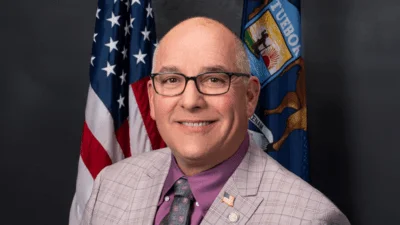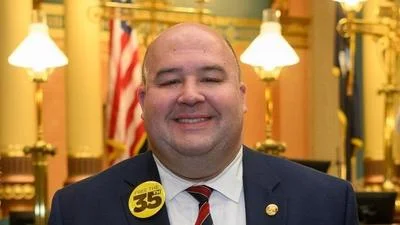Sandy K. Baruah President and Chief Executive Officer at Detroit Regional Chamber | Twitter Website
Sandy K. Baruah President and Chief Executive Officer at Detroit Regional Chamber | Twitter Website
The conclusion of Michigan's 102nd Legislature remains uncertain as several significant bills await resolution. The Detroit Regional Chamber's Public Policy and Business Advocacy team is actively monitoring these legislative developments, which are expected to impact business operations across the state.
The Chamber has called upon its members and the broader business community to engage with state legislators on critical issues. Among these is SB 1173, which would allow municipalities to establish local labor laws such as minimum wage mandates and paid time off requirements. This bill has passed the Senate and now awaits further action in the House.
Another significant proposal is SB 605–611, known as "Polluter Pay," which introduces stricter cleanup guidelines for urban redevelopment. This legislation also requires additional steps in the House following its Senate approval.
HB 5895–5897 addresses price gouging by allowing the Attorney General to act against businesses that raise prices by more than 15% during emergencies. Having cleared the House, it now moves to the Senate for consideration.
SB 1052 proposes banning TENORM waste acceptance in Michigan, potentially increasing costs for manufacturers who would need to export their waste. This bill too awaits further progress in the House after passing in the Senate.
Additionally, SB 579–581 seeks to revive a tax credit program aimed at employers creating high-paying jobs within Michigan. The package has moved from the Senate floor to await a decisive vote in the House.
SB 861–864 aims to restore productivity credits for inmates engaged in job training programs; it currently sits with a House committee after clearing the Senate.
HB 5100 offers tax credits for research and development activities conducted within Michigan. It requires a concurrence vote from the Senate before proceeding to the Governor’s desk, having passed both houses initially.
For bills to become law, they must undergo committee votes, floor votes in both chambers, potential concurrence if amended by either chamber, followed by gubernatorial approval.
The Chamber highlighted its success in defeating certain anti-business measures such as SB 1079–1080 related to workers’ compensation claims and SB 171 concerning municipal labor laws. A proposal threatening corporate income tax increases for road repairs was also thwarted.





 Alerts Sign-up
Alerts Sign-up